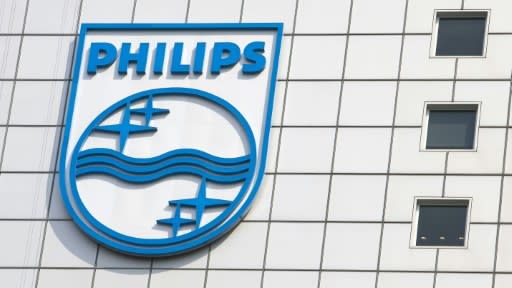Philips hits Q2 profit, warns global markets 'volatile'

Electronics giant Philips posted a 57 percent jump in second quarter net profit Monday on the back of a major arbitration award, as it warned of volatile markets ahead for the rest of the year.
Net profit surged from 274 million euros ($300 million) to 431 million euros after Philips was awarded 144 million euros in an international arbitration following a botched deal to sell its entertainment arm to Japan's Funai electronics company.
Philips in October 2013 announced it was breaking off the 150-million-euro sale, accusing long-time business partner Funai of breach of contract.
Philips said the Japanese firm refused "to take the necessary steps to enable completion of the transaction and the transfer of the business," whose products included hi-fi systems and DVD players.
Both manufacturers then filed for damages before the International Court of Arbitration.
The Paris-based court in April awarded Philips 135 million euros, which with interest and legal fees came to an amount of 144 million euros, Philips spokesman Joost Akkermans said.
Amsterdam-based Philips said total second quarter sales dropped by 2 percent from 5.97 billion euros to 5.86 billion euros year-on-year, but comparable sales was up by 5 percent in Philips' core health technology businesses.
Philips in 2014 announced it was selling off its lighting business -- a mainstay for more than a century -- to focus more on medical equipment, where margins are stronger and less vulnerable to competition from emerging markets.
Philips Lighting successfully listed on the Amsterdam stock exchange at the end of May and Philips currently holds a majority 71 percent share.
Following Philips Lighting's spinoff, "Philips will now fully focus on capturing exciting opportunities in the health technology space...," chief executive Frans van Houten said in a statement.
Van Houten said Philips' outlook for 2016 "remains unchanged as we expect earning improvements in the second half of the year."
But he warned: "We are concerned about increased risk due to volatility in a number of markets."
This was due to political and microeconomic issues "in most major region such as Europe (including Brexit), the United States, China, Russia, the Middle East and Turkey as well as Latin America," Philips said.
"Such conditions in economic markets may adversely affect the timing of, and revenues from, ongoing divestments," it said.
Founded in the southern Dutch city of Eindhoven in 1891, Philips employs 112,000 people worldwide.

 Yahoo Finance
Yahoo Finance 